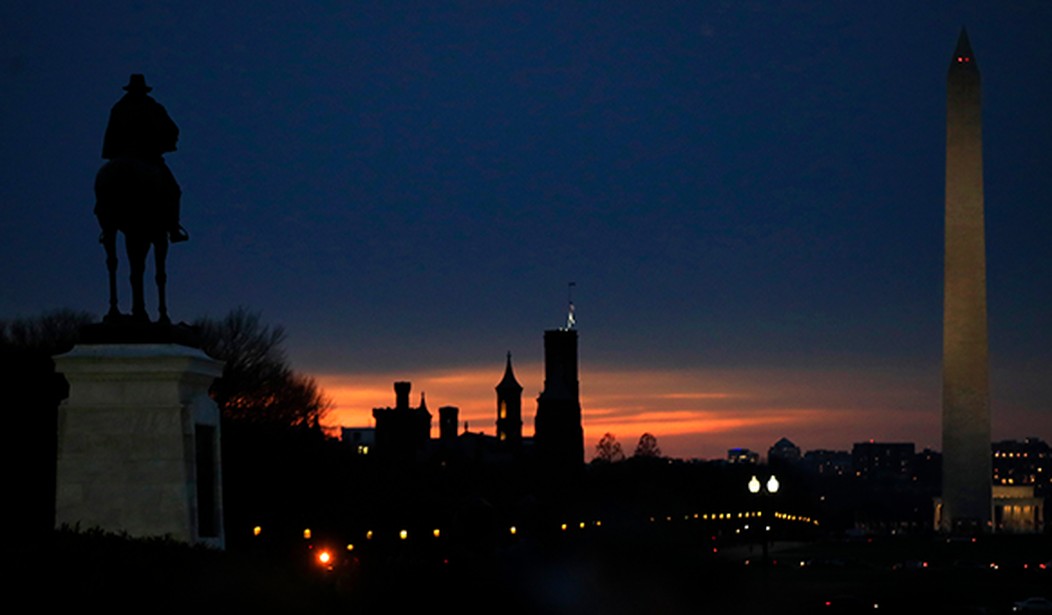I had an overwhelming 48 hours in Washington, D.C. recently -- a couple days that flew in the face of the cynicism we tend to feel about the place. Juan, who gave me a hug while he was waiting outside the homeless shelter, was a part of that, and so was Ivanka Trump.
I met Juan on Pennsylvania Avenue as I was about to meet Mrs. Earcylene Beavers, who was profiled in the HBO documentary "Foster." Beavers has taken some 1,000 children into her home in her three decades as a foster mother. Her adult daughter, who helps make that possible, was beside her.
That night, she was going from the National Council for Adoption's annual Hall of Fame event to the Congressional Coalition on Adoption Institute's yearly Angels in Adoption dinner. At the latter, the adorable 8-year-old adopted daughter of an Oklahoma congressman -- no wallflower, she -- talked me into making a monthly donation to CCAI. The lighted balloon she was sure I would give to her may have played into her conviction that surely I could spare $5 a month for the cause of helping children who need homes. The sweet smile on her face reminded me of Juan, whom I had met a few hours earlier. He told me he was just temporarily "down on (his) luck." There but for the grace of God go I -- go any of us.
My time in D.C. began with an adoption celebration at the Department of Health and Human Services, highlighting the plight of teenagers who need homes. One described going from foster home to foster home, just waiting for the moment when the rug would be pulled out and there would be another one. Adoption changed everything.
Adoption can change everything, even for a teenager who looks angry all the time -- because she is. Wouldn't you be, bounced from home to home? That's the amazing thing about some of these young people: They are beaming with joy and gratitude to have found a home for life, a "forever family," even late in their teen years.
Recommended
Never being loved in that kind of secure, permanent way -- as permanent as anything ever is in this world -- can very easily lead to poverty, crime, addiction, homelessness and suicide. Maybe it was the love from family, even if long ago, that made it possible for Juan to be loving, gracious and hopeful in his current circumstances. He had a plan for that night, and just wanted a little food so he could keep going. He was looking one day, or a few hours, ahead at a time. With a smile. Even in the cold city, where he knew he couldn't sleep on the streets -- though I saw many who were. He had a sense of the dignity of every life about him. That's more than we often have in some of our public policy debates.
And so about Ivanka: She came to Google's D.C. headquarters for a conversation on paid family leave I was hosting for the National Review Institute with my friend and colleague Ramesh Ponnuru. The family is our national resource. We simply have to do everything we can to help families flourish. And as pro-life advocates, as Ramesh and I both have been our entire careers and maybe lives, this absolutely has to be a priority.
This was the second time I'd heard Ivanka Trump talk about this issue, and she always emphasizes two things: one, that motherhood is the primary determinant for bankruptcy, and it shouldn't be. And two, that women tend to be unpaid caregivers for elderly parents and sick relatives -- not exclusively, but primarily.
We need to be more sensitive to people who are living out their love for their families in real, trying, sacrificial ways. This world can be brutal, and we need to be more tender.
And, goodness, our politics! What more can we do to help make life better for someone else? What more can we do to make politics less of a spectator sport? How can we appreciate that we are being invited into a deep level of civil society involvement every time we hear people arguing about a political issue? Maybe it's volunteering in the homeless shelter where Juan was going, or a church ministry feeding the hungry, or visiting the sick, or doing something to help the foster and adoptive families in your community. Do you even know who they are?
I was sitting at the adoption dinner with parents who have one biological child, two adopted children and one foster baby. The baby's mother needed help, and they were the only people who could see expanding their hearts and opening their homes.
May we all work to change the culture even in our daily lives.
Kathryn Jean Lopez is senior fellow at the National Review Institute, editor-at-large of National Review magazine and author of the new book "A Year With the Mystics: Visionary Wisdom for Daily Living." She can be contacted at klopez@nationalreview.com.

























Join the conversation as a VIP Member